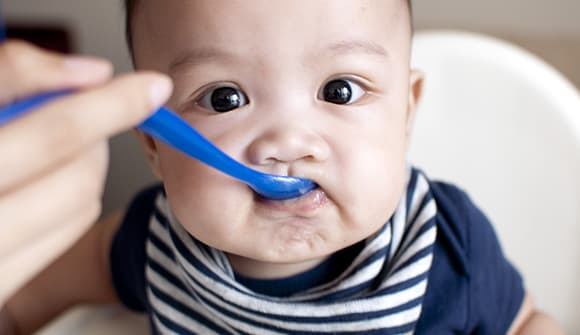Battling the baby blues
Don’t ignore signs of postpartum depression; know when to get help.
Article Author: Wesley Roberts
Article Date:

Brooke Shields, Drew Barrymore and Gwyneth Paltrow have all spoken out about having postpartum depression. But many new moms keep their feelings to themselves.
“Postpartum depression is very common,” said Blake Butterworth, MD, an OB/GYN with Women's Care Florida who delivers at Baptist Medical Center South. “But many women don’t tell anyone how they feel.” Some worry it’s a reflection of their motherhood skills or that they’ll be labeled “bad moms.”
About 10% to 20% of all new moms suffer from severe depression after giving birth. It usually happens about two weeks after having a baby, but can happen as late as six to 12 months after the baby is born.
Some moms mistake their depression for the exhaustion that comes with caring for a newborn around the clock.
“It’s not easy to tell the difference between the normal fatigue and stress that can accompany parenthood and postpartum depression. Most new parents feel overwhelmed and tired, and that’s normal,” said Dr. Butterworth. He says that when the feelings interfere with your ability to perform daily functions, especially caring for the baby, it’s time to get help.
Whiles there’s no definitive test to determine if it’s postpartum depression, here’s what to look for:
- Feeling worthless and hopeless
- Diminished interest in activities you normally like
- Extreme feelings of guilt for no reason
- Decreased appetite
- Extreme fatigue
- Lack of concentration
“It’s important for your partner and other family members to be aware of these symptoms,” said Dr. Butterworth. “They may notice that you aren’t yourself before you do and can help intervene so things don’t get worse.”
Anybody can get postpartum depression, but women who are prone to depression have an increased risk, as do those with a family history of depression. If it’s not treated, the condition may last months or longer. Treatment usually involves counseling, antidepressants or hormone therapy, or a combination.
Even for breastfeeding moms, antidepressants are sometimes prescribed. Your doctor will assess the potential risks and benefits of taking medication to help you make the decision that’s right for you.
“It’s important to note that treatment is not just about medication; therapy can play a larger role. Talking about your feelings helps tremendously,” Dr. Butterworth said.
Many people assume that postpartum depression is caused by hormonal changes, but there is no conclusive evidence to support that theory. “A woman’s estrogen and progesterone levels drop rapidly after delivery, which could contribute to depression, but that hasn’t been proven,” Dr. Butterworth said.
New dads can experience postpartum depression as well. Called paternal postpartum depression, the symptoms are the same. Those at highest risk are young fathers with a history of depression; relationship and financial problems can also contribute. The treatment for fathers is the same as it is for mothers experiencing the condition.
For anyone experiencing depression after childbirth, Dr. Butterworth stresses that it’s important “not to beat yourself up” if you experience sadness.
“Postpartum depression isn’t a character flaw. It’s a medical condition, just like having diabetes or high blood pressure, and it needs to be treated.”
Pregnancy is hard. If you’re struggling with anxiety or depression and need help from a mental health professional, call 904.376.3800 to make an appointment with Baptist Behavioral Health.



